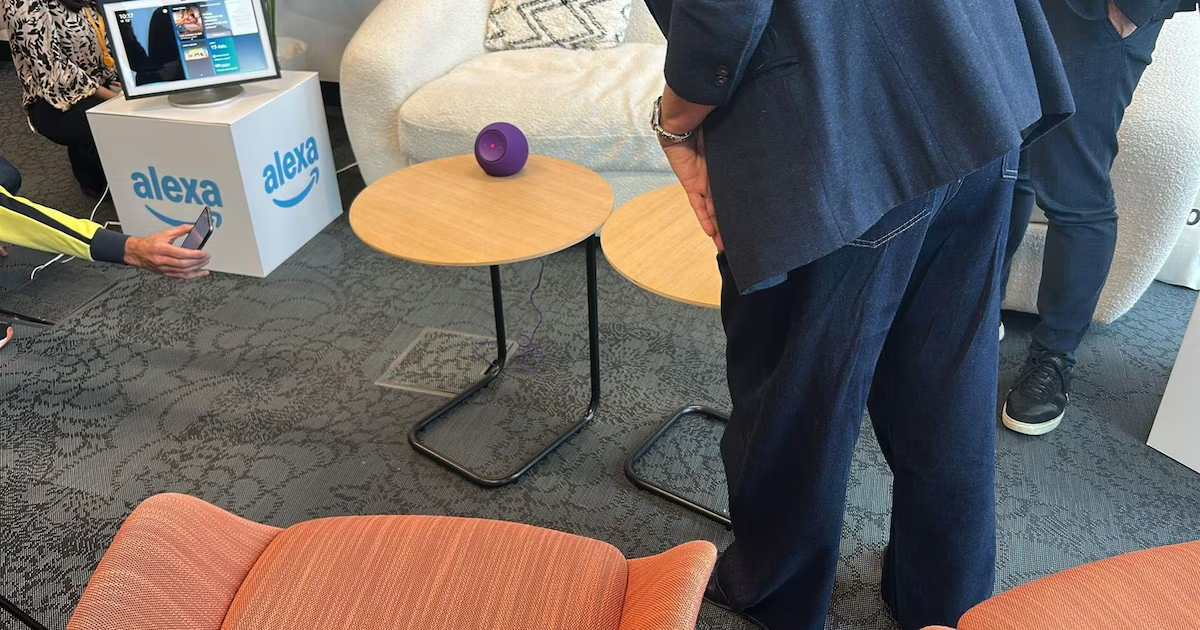
Fad Juventud and Amazon announced “Alexa, Break the Silence” this Thursday. The voice assistant will respond to insults and offensive language and provide awareness messages about the impact of cyber violence on youth, prevention tips and help resources.
Alexa received 6 million “I love yous” in 2024, but she also received insults like “stupid,” “stupid,” and “ugly.” That’s why, starting this Thursday and starting next month, Alexa will “break the silence” and respond to hate with messages designed by fashion experts to raise awareness and prevent the violence that so many young people and young adults suffer in the digital world.
As part of this awareness campaign, starting Saturday, Nov. 15, the voice assistant will also wake up when users say “Alexa, break the silence” or when they receive a question related to harassment, or in this case, when they ask “Alexa, good morning” or “Alexa, how are you doing?”
The general messages (not differentiated by user profile) will be updated during the campaign period and will focus on managing emotions and protecting mental health, with direct reference to Fad Juventud’s Information and Guidance Service (SIOF). SIOF provides free advice through various channels or by calling 900 16 15 15. Additionally, we provide resources for family or individual work.
Insults don’t help defuse tensions
For example, if you say “Alexa, idiot,” your voice assistant will respond with: “59% of young people admit to having felt psychological discomfort in the past year. Expressing aggression or insults, even in a digital environment, does not help defuse tensions and usually increases stress and emotional emptiness.” Next, we offer Fad’s help services.
“If you’re insulting to get attention, remember that there are other ways to be heard and acknowledged. Being seen and heard favorably will make people take you more seriously and avoid unnecessary conflict.” “Alexa, idiot,” he says when asked.
The project was announced at Amazon’s headquarters in Madrid by Andres Passos, General Director of Alexa in Spain, and Beatriz Martín Padura, General Director of Fud Juventud.
In his speech, Andres Passos pointed out that violence through social networks and digital devices “affects everyone, but especially young people”, noting that 21% of young people have been harassed on social networks, which is why he wanted to “put a twist” on this initiative, “to surprise and raise awareness”.
“I think it’s already quite a truism that the digital world is infiltrating everything into the reality of young people,” said Beatriz Martín Padura, highlighting that according to a recent Fudd study, 50% of young people between the ages of 15 and 29 have encountered hate speech and harassment in their environment.
insult from the environment
Fad’s general director claimed that 30% of young people had received hate messages, adding that 40% had had to block their profiles on social networks to “protect themselves” from harassment. Additionally, 18% claim they have been insulted or harassed by someone they know.
In this context, Martín Padura explained that harassment can occur “24 hours a day, 365 days a year,” as there are no time or space limitations in the digital environment. Damage increases with virality. It creates, among other things, feelings of shame and isolation in the victim.
As Fad’s general director elaborated, “The effects can be very deep and long-lasting, because every time the insult, ridicule, or humiliation is seen again, it actually reactivates the damage.” Additionally, the difficulty of erasing digital footprints and detecting instances of harassment has been highlighted.
“The societal response is still a bit inadequate,” Martín Padura said, warning that it was behind cyber-violence and “real stories” such as the story of young Sandra Peña, who was supposed to have committed suicide after being harassed at an education center.



